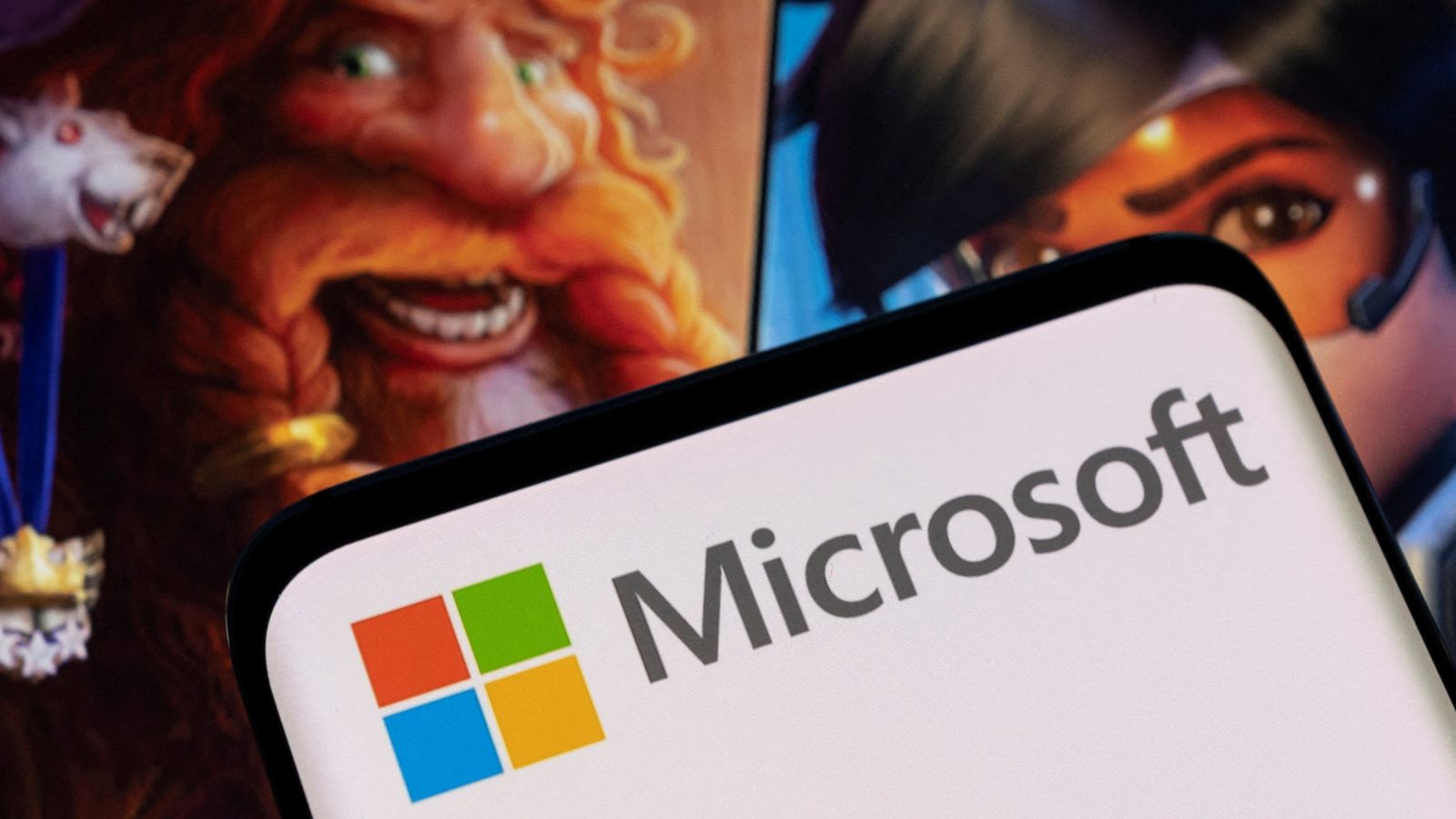Microsoft’s £55bn Activision takeover blocked by US court pending hearing

A US regulator has succeeded in a bid to temporarily block Microsoft’s £55bn takeover of video game maker Activision Blizzard, preventing the deal being completed this week.
The Federal Trade Commission (FTC), which opposes the tie up on competition grounds, went to court last night for a preliminary injunction.
A two-day hearing, in which all sides will put their case on the grounds for the injunction only, has now been scheduled for next week in San Francisco.
The ruling is the latest milestone on a rocky regulatory road for the companies.
Their takeover plans would give Microsoft control over important gaming content such as Call of Duty, Overwatch, and World of Warcraft.
The deal was blocked by UK regulators.
Please use Chrome browser for a more accessible video player
1:38
CMA explains opposition to deal
The companies plan to appeal the Competition and Markets Authority (CMA) determination that it would stifle competition in the cloud gaming market.
The EU allowed the deal but the FTC has similar concerns to the UK watchdog and moved to secure the injunction as the pair could have potentially closed the deal as early as Friday.
Closing the deal does not prevent it from being unwound at a later date, should the UK and US regulators win the day.
Advertisement
Read more:
London-listed Cineworld prepares to file for administration
Record wage growth fuels expectations of another interest rate hike
US District Judge Edward Davila said the temporary restraining order, granted to the FTC, was “necessary to maintain the status quo while the complaint is pending (and) preserve this court’s ability to order effective relief in the event it determines a preliminary injunction is warranted and preserve the FTC’s ability to obtain an effective permanent remedy in the event that it prevails in its pending administrative proceeding”.
Microsoft said it welcomed the FTC’s temporary injunction as it would accelerate the legal process.
It has argued that the deal would benefit gamers and gaming companies alike, and has offered to sign a legally binding consent decree with the FTC to provide “Call of Duty” games to rivals including Sony and Nintendo for a decade.